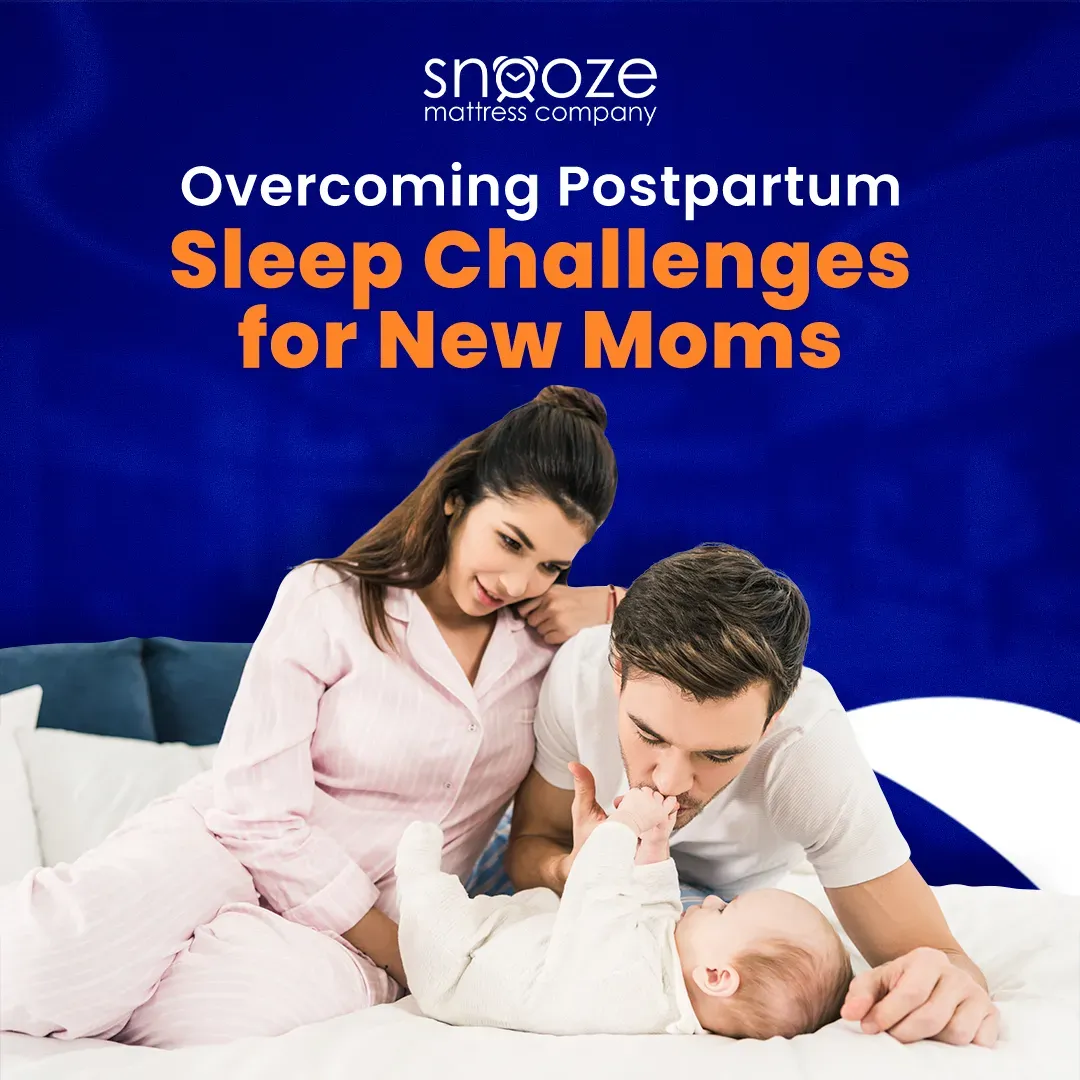Overcoming Postpartum Sleep Challenges for New Moms
Tue Jun 03 2025

Welcoming a new baby is an exciting and transformative experience, yet it also brings a host of challenges, particularly when it comes to sleep. Many new moms face significant changes in their sleep patterns, often due to the demands of newborn care and the physical and emotional adjustments postpartum. Our blog explores the effective strategies for overcoming postpartum sleep challenges, helping new moms (and dads) find restorative rest and maintain their well-being during this special but demanding time.
Understanding Postpartum Sleep Disruption
First, it's important to understand why sleep disruption occurs. Postpartum, mothers experience hormonal changes that can affect their sleep quality. Breastfeeding and the newborn's sleep cycle, which typically involves waking every two to three hours for feeding, further disrupt maternal sleep. Additionally, postpartum anxiety and depression can affect sleep, creating a cycle of sleeplessness that can be hard to break.
Strategies for Better Sleep
Accept Help
One of the most effective ways to improve sleep is to accept help from others. Whether it's your partner, family, or friends, allowing others to take care of the baby while you rest can make a significant difference. Don’t hesitate to ask for help with household chores or baby care to snatch a few extra moments of sleep.
Sleep When the Baby Sleeps
This age-old advice still holds true. It may be tempting to catch up on household tasks or personal time when the baby sleeps, but taking naps simultaneously can help reduce sleep debt. Even short naps can be restorative.
Create a Comfortable Sleep Environment
Ensure your bedroom is conducive to sleep. This means keeping the room dark, quiet, and at a comfortable temperature. Consider using earplugs, eye masks, or white noise machines to block out disturbances.
Practice Good Sleep Hygiene
Ensure your bedroom is conducive to sleep. This means keeping the room dark, quiet, and at a comfortable temperature. Consider using earplugs, eye masks, or white noise machines to block out disturbances.
Prioritize Nutrition and Hydration
Proper nutrition and hydration are vital for good sleep. Eating balanced meals and staying hydrated can help maintain your energy levels and support better sleep. Be mindful of caffeine intake, especially in the afternoon and evening.
Exercise Regularly
Physical activity can promote better sleep, reduce stress, and improve overall well-being. However, be sure to listen to your body and consult with your healthcare provider about when it’s appropriate to resume or start a new exercise regimen postpartum.
Consider Professional Support
If sleep challenges persist, consider seeking support from a healthcare professional. Persistent sleep deprivation can lead to or exacerbate postpartum depression and anxiety. A professional can offer strategies tailored to your specific situation or recommend therapies or treatments.
While postpartum sleep challenges are common, they are not insurmountable. By employing these strategies, new moms can work towards improving their sleep quality and quantity. Remember, taking care of yourself is not selfish—it's a vital part of being able to care for your new baby.
